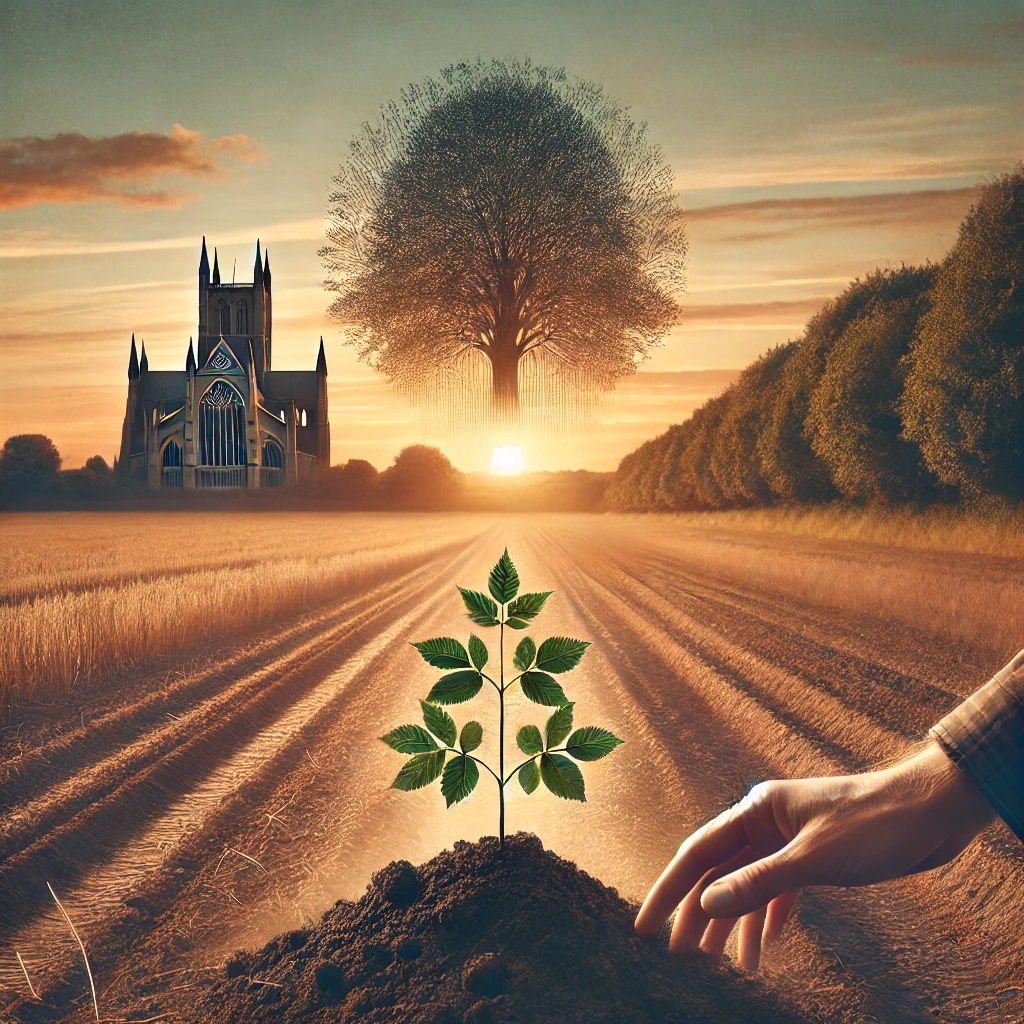In today’s fast-paced world, it can be easy to get caught up in the immediate concerns of life—our daily tasks, financial worries, and short-term goals. But what if we took a moment to step back and consider not just our lives, but the lives of those who will come after us? How will the choices we make today shape the world for future generations?
This is the question Roman Krznaric explores in his book The Good Ancestor. Krznaric challenges us to think beyond the here and now and consider the long-term impact of our actions. He calls this shift “long-term thinking” or “cathedral thinking,” inspired by the grand, centuries-long process of building cathedrals in the past. While those who began constructing the cathedrals would never see their completion, they knew they were contributing to something beautiful and lasting, meant to serve future generations.
What Does It Mean to Be a Good Ancestor?
At its core, The Good Ancestor is about legacy—but not just the personal kind. Krznaric invites us to expand our understanding of legacy to encompass the well-being of humanity and the planet far beyond our own lifetimes. He introduces the idea of “time rebels,” individuals who challenge the modern world’s obsession with short-term results and instead advocate for decisions that will benefit people 100 years, or even 1,000 years, from now.
Krznaric provides inspiring examples of individuals and movements that embody this long-term thinking. From environmental activists planting trees today that will be forests for future generations, to policymakers advocating for laws that protect the Earth, the book emphasizes that we all have the potential to be good ancestors through the choices we make now.
Cathedral Thinking in Everyday Life
One of the most compelling concepts in The Good Ancestor is cathedral thinking. Historically, cathedrals were projects that took hundreds of years to complete, with builders working on them knowing they would never see the finished result. Today, Krznaric argues, we need to adopt a similar mindset when it comes to the decisions we make for the planet, our communities, and our descendants.
Cathedral thinking invites us to ask, “What projects or ideas can we invest in today that will benefit people long after we’re gone?” It’s about thinking beyond quick wins and immediate gratification, and instead building something enduring—whether it’s a sustainable environment, a more just society, or a cultural legacy of wisdom and kindness.
Shifting from Short-Term to Long-Term Thinking
Krznaric also points out that our current culture is deeply rooted in short-termism—whether in politics, economics, or even our personal lives. But if we want to create a world that future generations can thrive in, we need to break out of that mindset. He highlights strategies for becoming a long-term thinker, including practicing mindfulness, considering the environmental and social impact of our choices, and advocating for systemic changes that prioritize future generations.
This perspective encourages us to reflect on what kind of ancestors we want to be. How do we want to be remembered—not just by our immediate family, but by future generations who will inherit the world shaped by our actions? What values, principles, and systems do we want to leave behind? And how can we start living today with a broader view of the future?
Becoming a Good Ancestor Today
The Good Ancestor offers a hopeful message: it’s not too late to become the kind of ancestor future generations will thank. We can start by making small changes in our own lives, such as reducing our environmental impact, supporting causes that fight for a better future, or even simply reflecting on the long-term consequences of our everyday actions.
Krznaric’s book is a call to action—one that encourages us to shift our focus from short-term goals to long-term contributions. As we reflect on what it means to live a purposeful life, The Good Ancestor reminds us that true purpose isn’t just about what we achieve in our lifetime, but what we leave behind for those who will follow.
So, as we consider our personal legacy, let’s take a step further and ask: How can we contribute to a legacy that benefits future generations? What steps can we take today to ensure that our actions lead to a better, more just, and sustainable world for the seventh generation and beyond? The resources section below contains additional information that you may want to look at as you contemplate these questions.
Call to Action
Are you ready to become a good ancestor? Start by reflecting on your daily choices and how they might affect future generations. Whether it’s through reducing waste, supporting long-term initiatives, or simply being more mindful of the ripple effect of your actions, you have the power to shape the future.
More resources
The BBC have created a short, 5-minute video called How to move from Short-Term to Long-Term thinking
Roman Krznaric also gave a Ted talk on this topic as an introduction to his book.
The Long Now Foundation was established to foster long-term thinking and their website has information about its projects, talks and ideas.
The country of Wales passed the Wellbeing of Future Generations Act in 2015 and has a Future Generations Commissioner.
✨ Roman Krznaric challenges us to think long-term and act as good ancestors. One way to begin is by reflecting on your own journey. The Writing Your Life Story module offers guidance to help you reframe your past and align your present choices with the legacy you want to create.
👉 Explore the Writing Your Life Story module here
This article concludes the All Hallows series. You can revisit the earlier reflections here: Return to series overview

